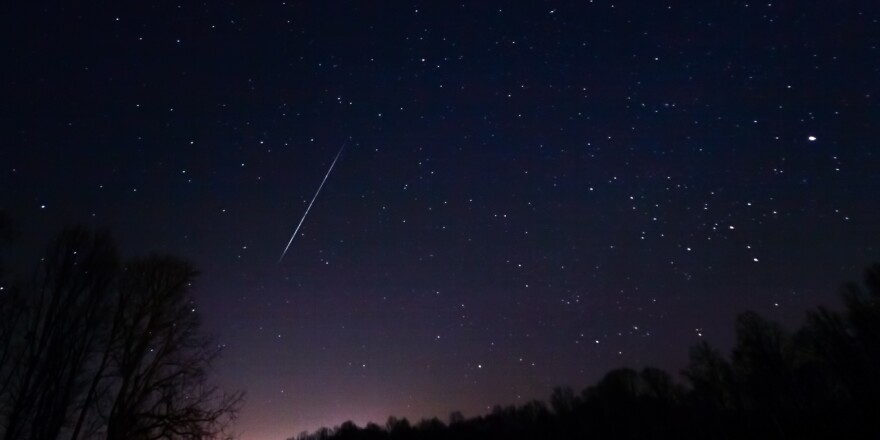This week marks the annual return of the Geminids meteor shower, which is visible from the Florida Panhandle, weather permitting.
The shower actually began earlier this month, with only a few meteors visible overnight. But Wayne Wooten, an astronomer at Pensacola State College, says things should ramp up by the start of next week.
“The Geminids have been the best meteor shower of the year on average,” Wooten said. “The peak’s early Monday morning with maybe two meteors per minute coming out of the direction of the constellation Gemini.”
Sunday night/Monday morning may not offer the best view locally, with a 70% chance of thunderstorms. Wooten says it should get better the next evening, with clearing skies. Then, he says, look to the eastern skies for a meteor shower that has what he calls a “most unusual” genesis.
“Most meteor showers can be tracked back to the demise of old, short-period comets,” Wooten said. “When comet debris sloughs off the nucleus and enters the Earth’s atmosphere as cosmic dust. The parent body for this meteor shower is officially classified as an asteroid called Phaethon.”
Because the material off the asteroid is more substantial than that from comets, the shooting stars that result ten to last longer and put on a fairly good fireworks display, along with giving people a good grasp of the universe.
Throughout history, meteor showers have done more than just entertain and fascinate. Wooten says many of today’s Christian denominations can trace their roots to one in the mid-19th century, 1833 to be precise.
“Because there was such a huge meteor shower – the Leonid meteor shower in November, 1833 – it literally scared the Hell out of people,” Wooten said. “They got religion and got it fast, because they thought that the Second Coming was very imminent.”
But among those who didn’t buy into that notion, was an attorney in Illinois named Abraham Lincoln.
“One of his neighbors woke him up and told him ‘The heavens are falling,’” said Wooten. “And Lincoln said, ‘No, it’s just a mighty nice meteor shower.’ And he stayed up to observe it, but he didn’t get any more religious than he already was.”
Wooten compares the Geminids shower to the Leonid meteor shower he watched at Fort Pickens in November 2001, where they counted about 1,400 meteors in a four-hour period. He and the PSC Astronomy Club will be at Fort Pickens Monday night, setting up telescopes and other viewing equipment at the Scout Camping Area.
In 2016, the Perseids meteor shower will occur August 9-13, while the Geminids returns December 7-16.



